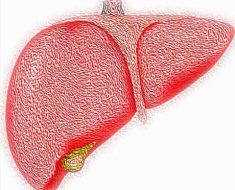SHANGHAI/BEIJING (Reuters) -A handful of COVID-19 infections have forced the northern Chinese port city of Tianjin to shut many entertainment venues and some kindergartens and tutoring agencies, the latest big city to fight nascent clusters.
Tianjin, with a population with over 12 million and home to factories linked to Boeing and Volkswagen, reported 11 domestically transmitted infections for Monday after around a week of zero cases, official data showed on Tuesday.
Tianjin Port Co Ltd, which manages the port’s cargo loading and unloading businesses, is operating normally, a representative said on Tuesday.
Caseloads for Tianjin and the rest of China have been low in the global context for over two years, but China has maintained a “dynamic zero COVID” policy of containing outbreaks as soon as they emerge, even though its strict measures in response to the highly transmissible Omicron variant have disrupted local businesses and clouded the outlook for the world’s second-largest economy.
Tianjin officials said late on Monday that various indoor entertainment venues, such as chess and card parlours and bars, in two districts with a total of over 2 million residents were ordered to close, without specifying a date for their reopening.
One of the districts said it also ordered a three-day closure at kindergartens and tutoring agencies.
Nomura analysts said in a note on Monday that an estimated 264.1 million people in 41 cities in China are affected by full or partial lockdowns or other control measures, up from 247.5 million in 31 cities last week.
Including Tianjin’s cases, mainland China reported 699 new domestically transmitted infections for July 18, of which 199 were symptomatic and 500 were asymptomatic, the National Health Commission said on Tuesday.
The majority of Monday’s new cases were found in the northwestern province of Gansu and the southern region of Guangxi.
In Gansu’s provincial capital of Lanzhou, a district with over 100,000 residents entered a lockdown from Monday, during which each household can leave their residential compound only once each day to get groceries. A lockdown for four other major districts with around 3 million people started last week and has been extended to July 24.
In Guangxi, the coastal city of Beihai, currently clocking over 700 local cases, has become the latest tourism city hit by travel restrictions.
Beihai has told hotels and travel agencies to fully refund trips and stays booked by those who were eventually unable to come, reversing a pre-outbreak boom in demand.
It is also rushing to take care of over 2,000 tourists stuck in the city, some of whom had come in close contact with infections or visited areas affected by the virus and couldn’t leave without going through quarantine. Tourists who are able to leave have to show negative test results within the previous 48 hours.
The financial hub Shanghai, which reported 23 new local cases for Monday, began mass testing on Tuesday in many of its 16 districts, after a similar testing drive last week.
There were no new deaths, leaving the nation’s fatalities at 5,226.
As of Monday, mainland China had confirmed 227,830 cases with symptoms, including both local cases and infected international travellers.
(Reporting by Roxanne Liu, Ryan Woo and Shanghai Newsroom; Editing by Kim Coghill and Raju Gopalakrishnan)
Source: Read Full Article





